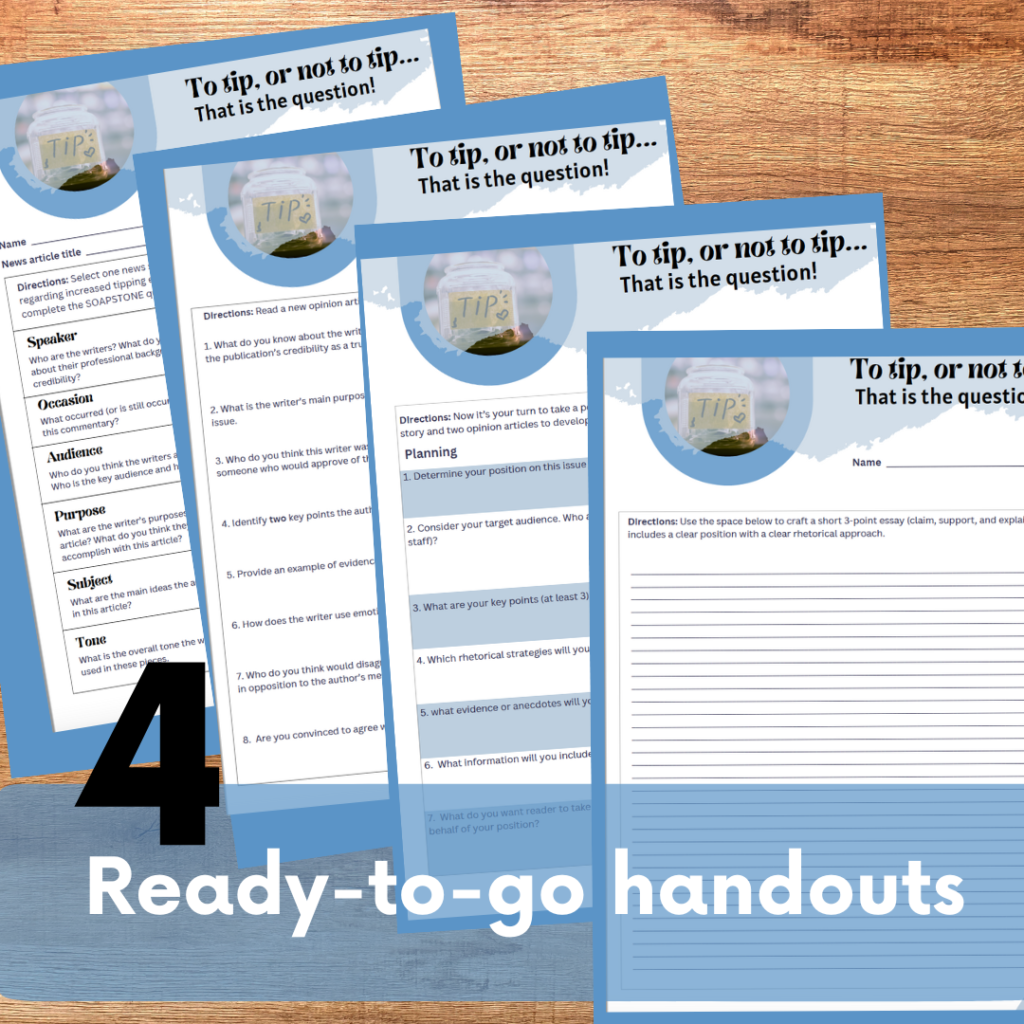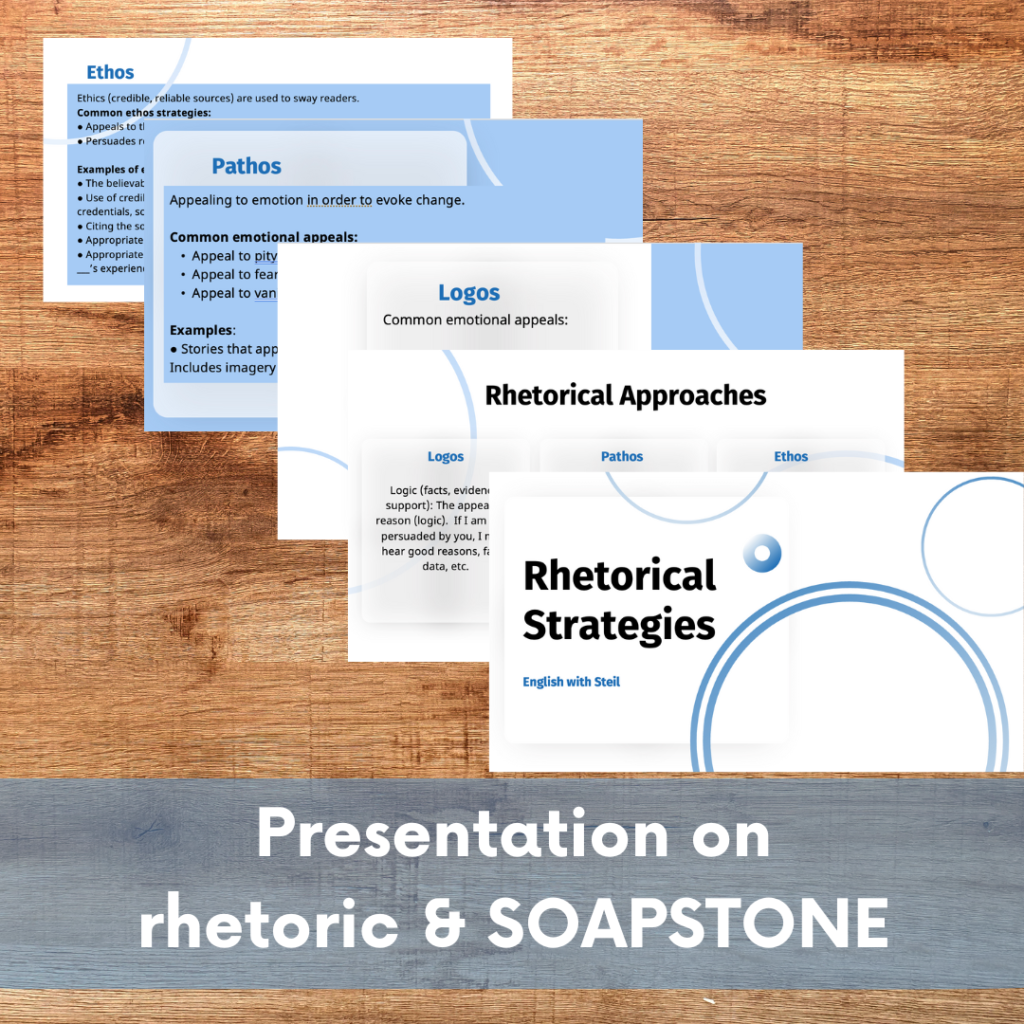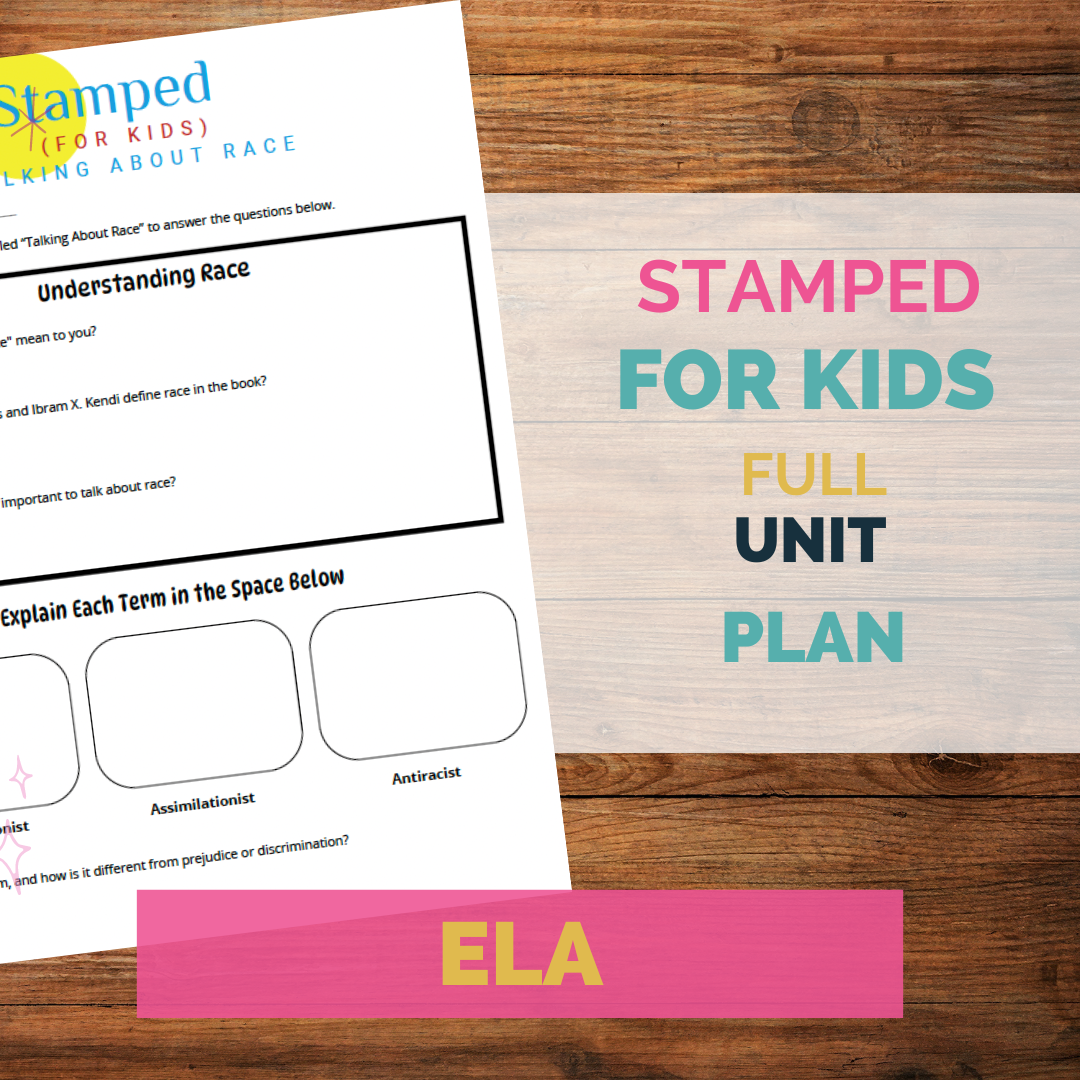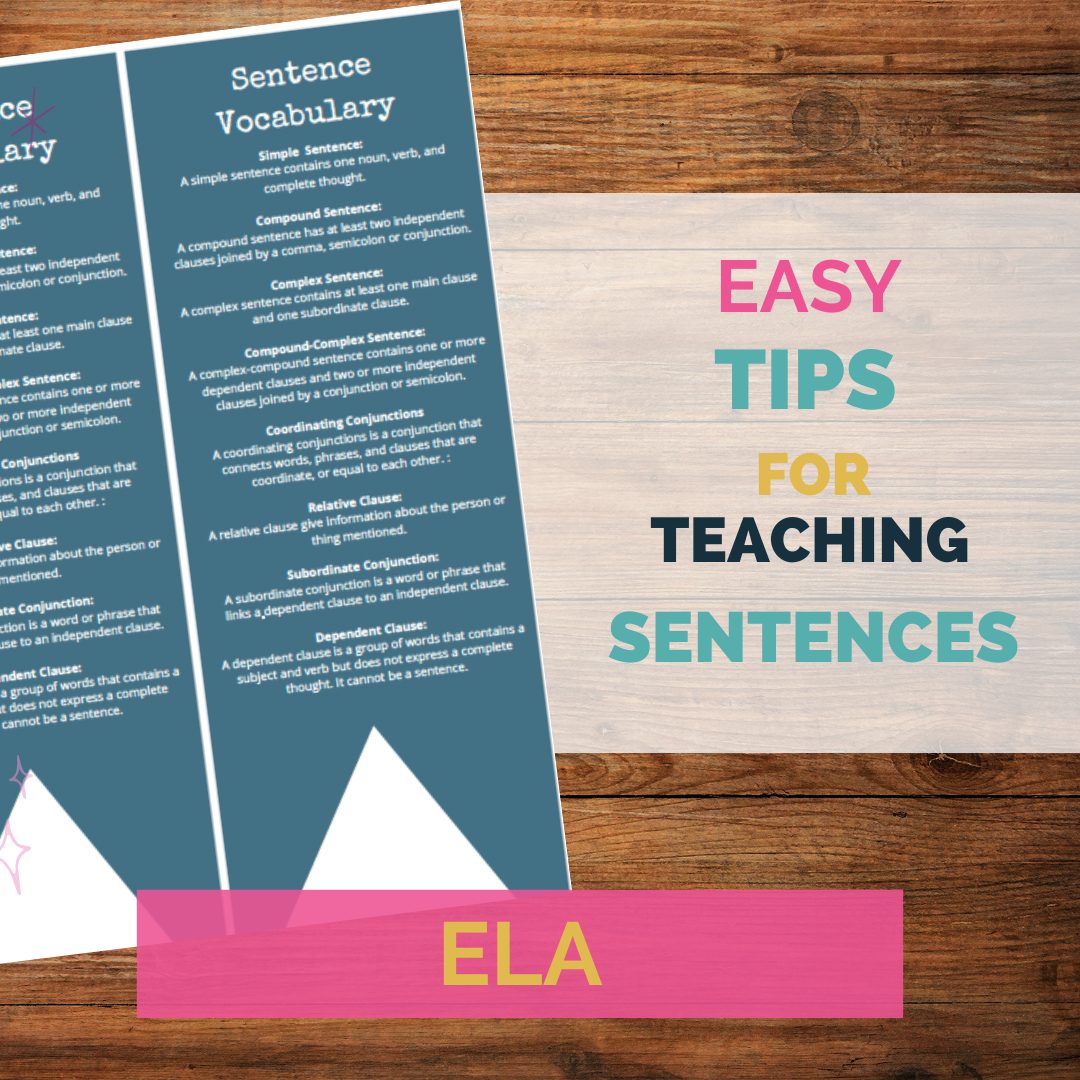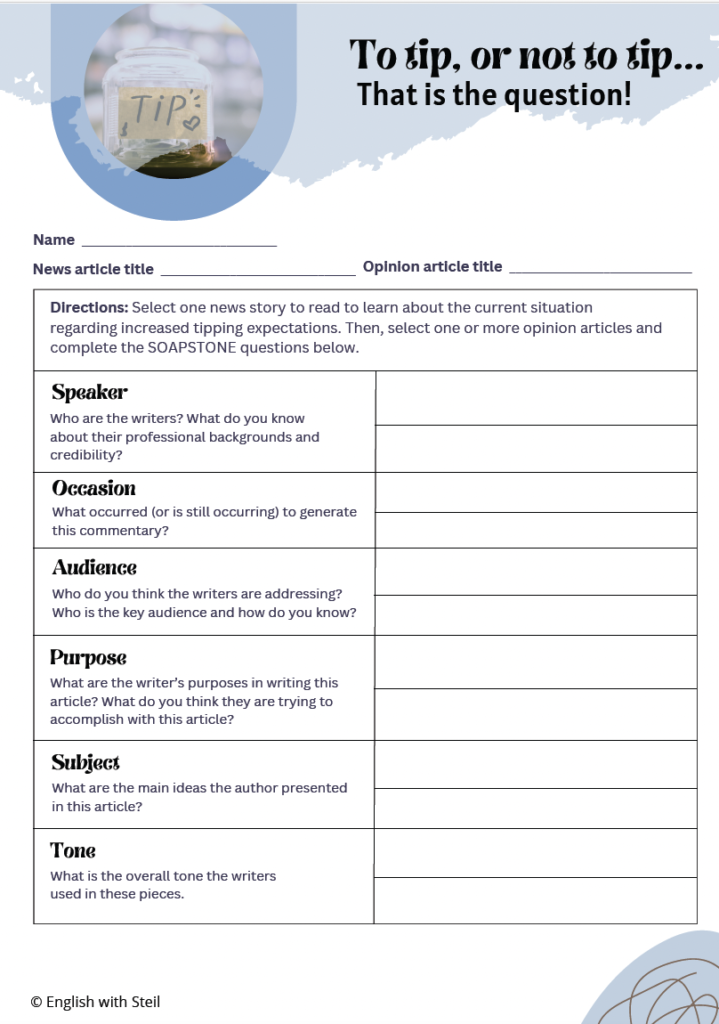
Are you looking for a way to make rhetoric come alive for your students? Using current, high-interest topics from the news media can do just that! Through the study of rhetorical strategies—ethos, pathos, and logos—students will read and analyze articles on the debate of whether to tip or not. This engaging unit will help them think critically, evaluate different viewpoints, and develop their own informed opinions.
Introducing Rhetoric with High-Interest Topics
We start by introducing the foundational concepts of rhetoric: ethos, pathos, and logos. These are the pillars of persuasive writing and critical analysis. To make these concepts tangible, we’ll use the timely and relatable topic of tipping. Here’s how to get started:
Presentation on Rhetorical Strategies: Kick off the unit with a 5-slide presentation that breaks down ethos (credibility), pathos (emotional appeal), and logos (logical reasoning). Incorporate the SOAPSTONE method (Speaker, Occasion, Audience, Purpose, Subject, Tone) to help students analyze rhetorical situations comprehensively.
How-To Tip: Use real-world examples from popular media to illustrate each rhetorical strategy. This makes the concepts more accessible and engaging for students.
Reading and Analyzing Articles
Diverse Perspectives: Provide students with a selection of nine hyperlinked articles that cover both sides of the tipping debate. Include a mix of news reports and opinion pieces to give a well-rounded view of the issue. Make sure the articles are up-to-date and come from credible sources.
Close Reading: Use a 2-page worksheet to guide students through a close reading of the articles. The worksheet prompts them to identify the rhetorical strategies used by the authors and analyze their effectiveness. This exercise not only deepens their understanding of rhetoric but also enhances their critical thinking skills.
How-To Tip: Encourage students to highlight and annotate the articles as they read. This active reading strategy helps them engage more deeply with the text and identify key rhetorical elements.
Developing and Writing Their Own Opinions
Formulating Opinions: After analyzing the articles, students will use a second 2-page worksheet to develop their own positions on the tipping debate. The worksheet guides them through organizing their thoughts, gathering evidence, and structuring their arguments.
Opinion Writing Template: Provide a template for students to write their own opinion pieces. This template helps them apply the rhetorical strategies they’ve learned and ensures their writing is clear, persuasive, and well-organized.
How-To Tip: Have students peer-review each other’s opinion pieces. This not only improves their writing through feedback but also exposes them to different perspectives and argumentative styles.
Flexible Lesson Plans
This resource is incredibly versatile. You can stretch it out into a multi-day lesson on rhetoric or break it down into single-day lessons if you’re short on time. It’s also perfect for substitute teachers, as it includes everything needed for a comprehensive and engaging lesson.
Multi-Day Lesson Plan:
- Day 1: Introduce ethos, pathos, logos, and SOAPSTONE with the presentation.
- Day 2: Begin close reading of articles with guided worksheet.
- Day 3: Continue article analysis and class discussion.
- Day 4: Develop personal opinions using the second worksheet.
- Day 5: Write and peer-review opinion pieces.
Single-Day Lesson Plan: If you need a quicker option, focus on one article and a specific rhetorical strategy. Have students analyze the article and write a brief response using the identified strategy.
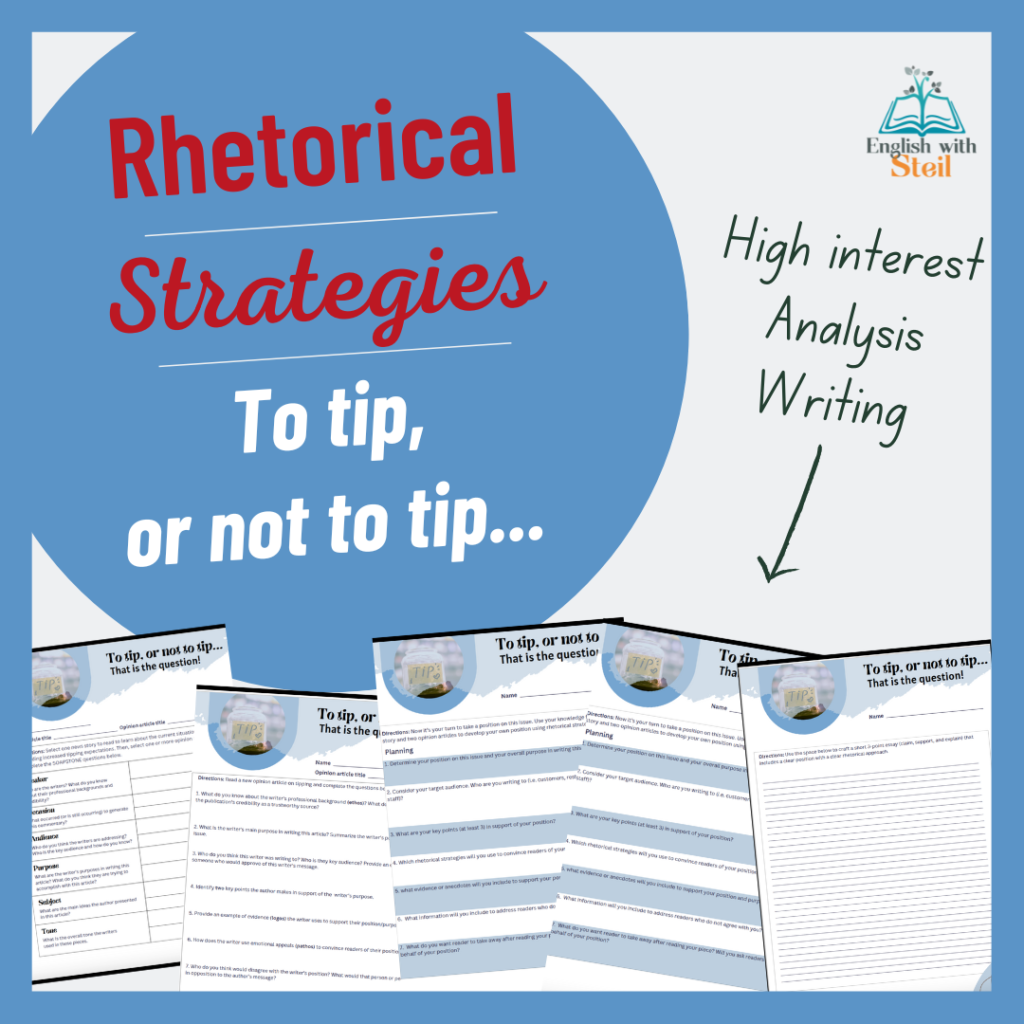
Final Thoughts
Using current, high-interest topics like the tipping debate makes learning about rhetoric exciting and relevant for students. By reading and analyzing a variety of perspectives, they not only improve their critical thinking and writing skills but also become more informed and engaged citizens.
This unit on rhetoric and the tipping debate has everything you need to create a dynamic and educational experience for your students. Whether you use it as a multi-day lesson or a single-day activity, your students will walk away with a deeper understanding of persuasive writing and critical analysis.
Happy teaching and happy debating!

